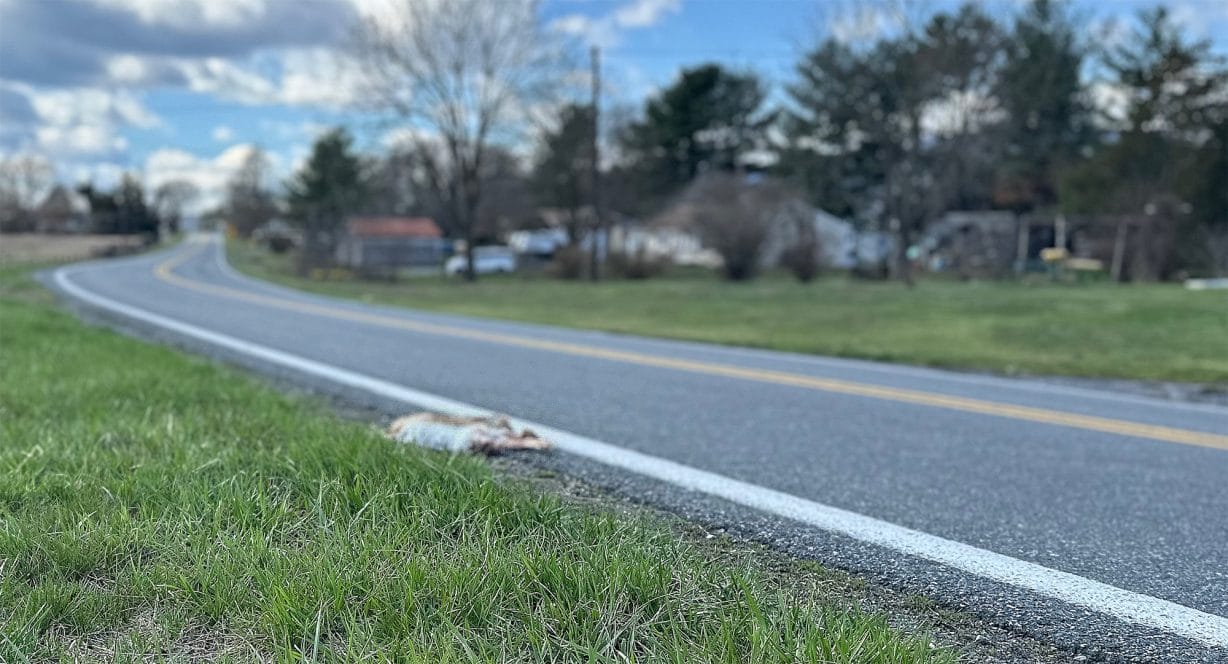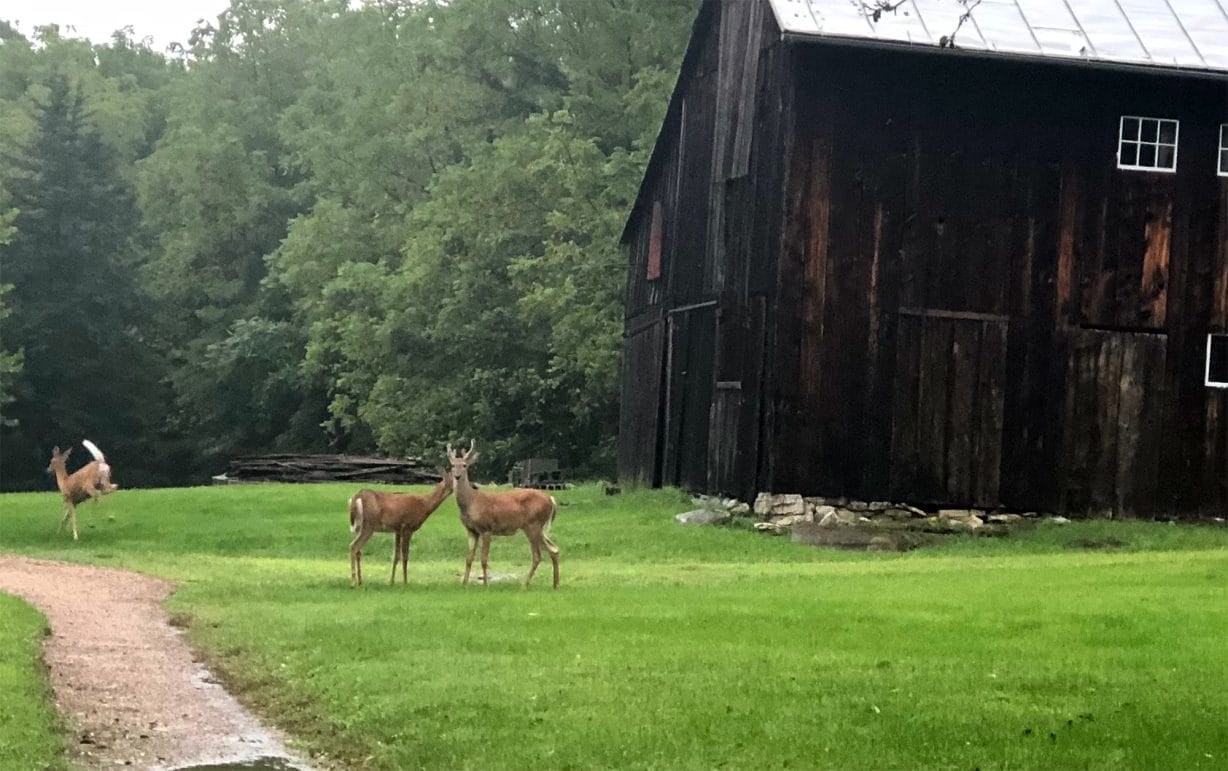
By Bridget Manley, publisher
As the Virginia General Assembly Session in Richmond comes to a close, Harrisonburg’s delegate has notched a bipartisan win with a bill that passed the House 98-0 and 37-3 in the Senate.
It’s known as “the roadkill bill.”
Del. Tony Wilt of Rockingham County sponsored House Bill 1025, which now heads to Gov. Glenn Youngkin’s desk to be signed. The bill amends the law regarding how roadkill can be collected (and by whom) after automobile collisions.
Before Wilt’s bill, if a person hit a deer while driving, only that person could take the deer and only during deer hunting season.
Wilt’s bill allows anyone – not just the person in the accident – to call the Virginia Department of Wildlife Resources or the local sheriff’s department to get the OK over the phone to take it and cart it away.
There are several reasons why the bill could help both government officials and constituents.
The average weight of a deer is between 80-160 pounds and can yield anywhere from 45-75 pounds of meat – as much as 215 servings of venison. With just a big deep freezer, one deer is a low-cost option that can feed a family for months.
“That is a natural resource that we have, and it would be a shame to see it go to waste,” Wilt said.
Wilt also said this might ease the work of Virginia Department of Transportation employees, who are charged with collecting roadkill from highways and disposing of them. Often by the time VDOT arrives, the meat is unfit for consumption.
Wilt said getting animals off the roads sooner could aid in making the roads safer.
The law isn’t limited to just deer – it also applies to bears, turkeys and elk. And the idea isn’t new. Many states, including Maine and Alaska, have lotteries for roadkill.
In Maine, where moose accidents are common, the driver has the first right to the roadkill. If they do not want it, local police departments start to call people from lists until they reach someone who wants the meat.
Convincing legislators to change the law
Wilt, who sponsored the bill after being asked by a constituent, said while his colleagues from areas like Northern Virginia might not have to deal with large animals, it remains a reality for rural areas, including Rockingham County.
“[Legislators] represent various areas and various interests, and in some areas, there’s quite a contrast,” Wilt said.
Wilt said convincing his colleagues to vote for the bill has been as entertaining as much as it has been educational.
“It’s been an interesting, fun journey going through the legislative process and explaining how it would work,” Wilt said.

He said he’s also taken quite a bit of ribbing from colleagues for the last few months.
“Yeah, it’s funny,” Wilt said, chuckling. “Oh, my word, we’ve had a lot of fun with it here, with other legislators. I’ve heard plenty of jokes.”
Going through the committee hearing process, he heard concerns from other delegates who needed more elaborate descriptions to help them see the bigger picture.
Some legislators said they worried drivers might intentionally hit animals to collect the meat. Wilt pointed out to them that the cost of automotive repairs would make that an untenable idea. Other legislators worried that people might take days-old rotting meat off the highway and get sick.
“If you see an animal laying there, it’s been there a few days and it’s doubled in size, I’m really counting on common sense kicking in here, and people saying, ‘Nah, I don’t want that one, I’m going to pass on that one,’” Wilt saidw with a laugh.
Wilt said that he’s gotten “the same ribbing back at home” from constituents, but he’s also heard from some people who are excited for the changes to the law.
While Wilt hasn’t yet spoken to Youngkin about whether he will sign the bill, he said he’s optimistic the bill will be signed into law.
“He seems to have a good sense of humor,” Wilt said, “so I think it will be fine.”
Thanks for reading The Citizen, which won the Virginia Press Association’s 2022 News Sweepstakes award as the top online news site in Virginia. We’re independent. We’re local. We pay our contributors, and the money you give goes directly to the reporting. No overhead. No printing costs. Just facts, stories and context. We value your support.













